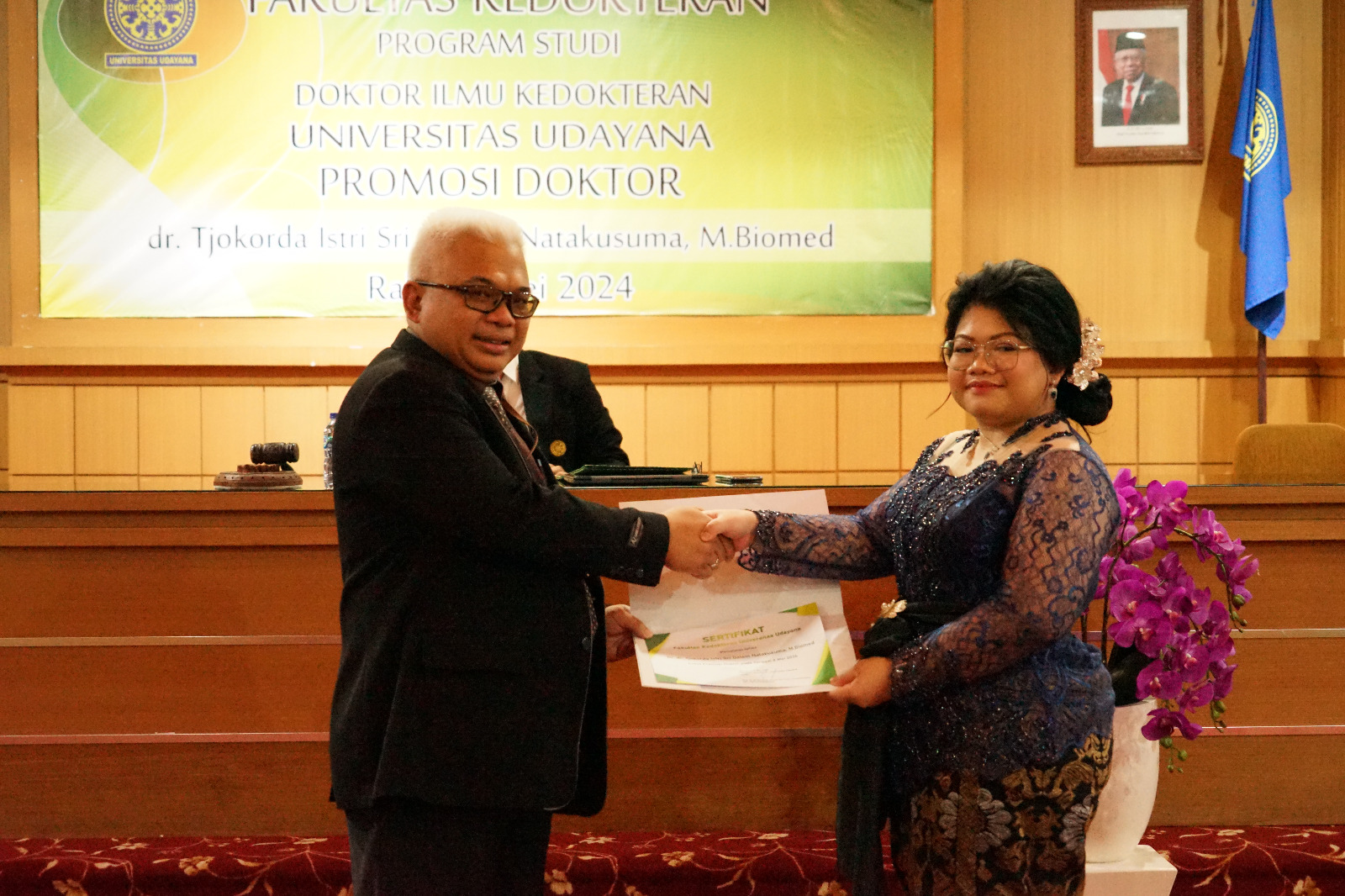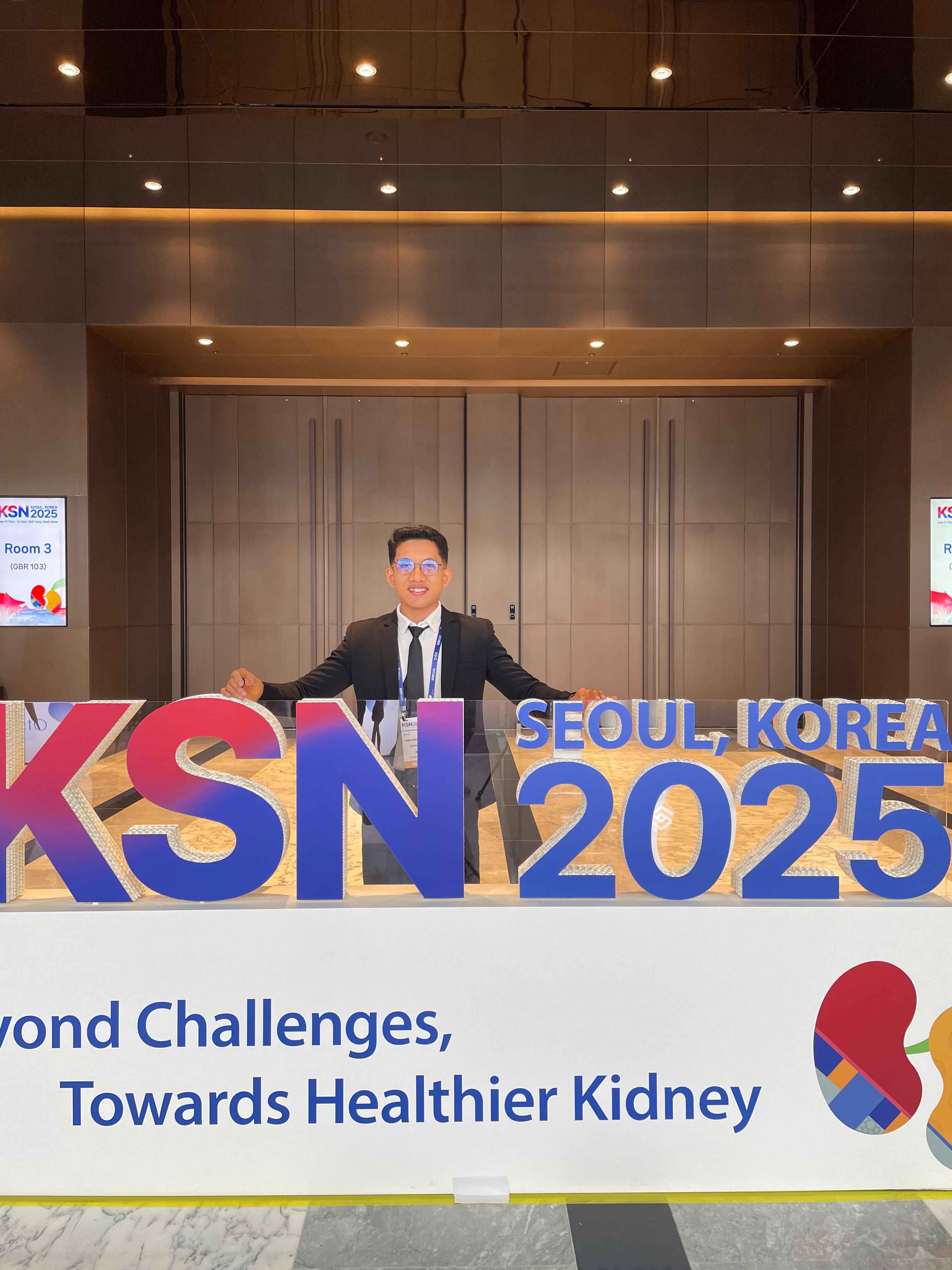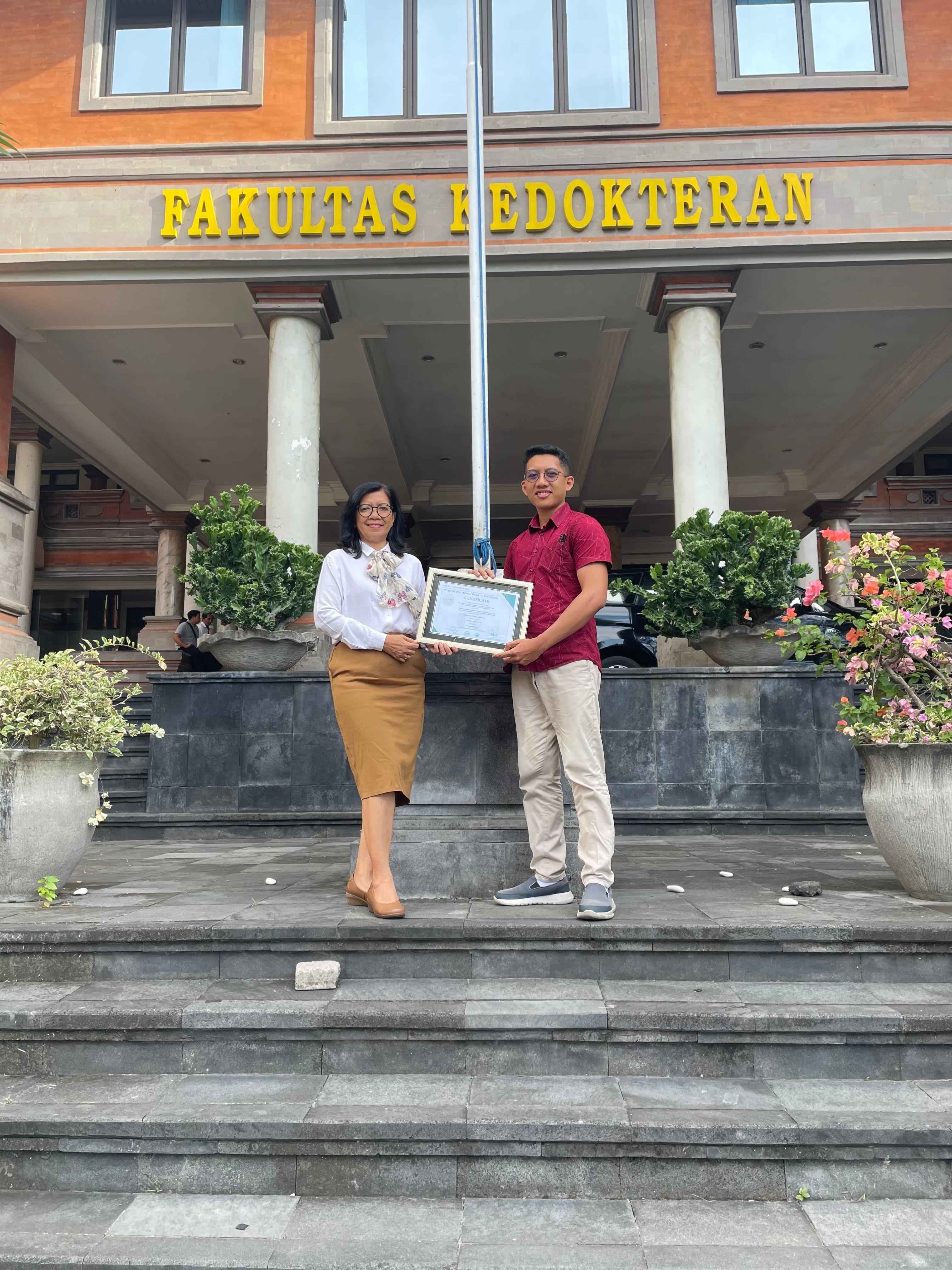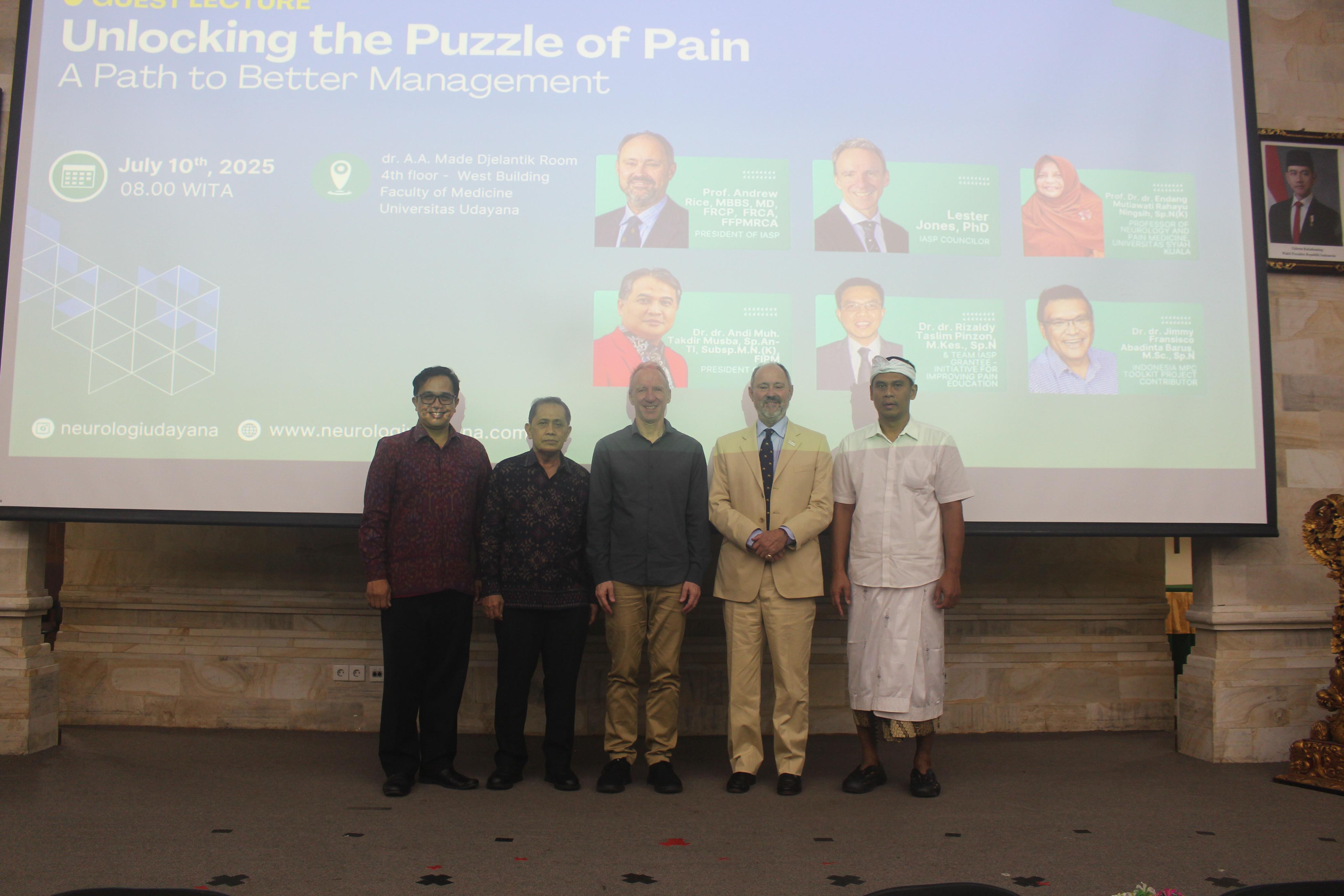Doctor of Medicine Promotion Exam Reveals the Potential of Adiposed Stem Cells in Reducing Post-Laminectomy Epidural Fibrosis
Doctor of Medicine Promotion Exam Reveals the Potential of Adiposed Stem Cells in Reducing Post-Laminectomy Epidural Fibrosis
Located in the III Floor Hall, Udayana University Postgraduate Building, Denpasar, the Doctoral Promotion exam took place with Promovenda candidate Dr. Tjokorda Istri Sri Dalem Natakusuma, M.Biomed., with the dissertation title "The Effect of Adiposed Stem Cells on Levels of Interleukin-6, Interleukin-10, Transforming Growth Factor-Beta 1, Fibroblast Proliferation and Epidural Fibrosis Formation After Laminectomy in Rats."(8/ 5/2024)
Laminectomy is a very common procedure used to treat spinal cord problems. Laminectomy aims to access the epidural space and also decompress the spinal cord. Failed back surgery (FBS) is said to occur in 8-40% of laminectomy procedures. Epidural fibrosis is one of the highest causes of FBS, accounting for 24% of the total FBS cases. Adipose derived stem cells are mesenchymal stem cells obtained from adipose cells and are known to have various effects that can help in the wound healing process. ADSC can help modulate IL-6 formation, IL-10 production and reduce TGFB1 levels so that it can potentially reduce fibroblast proliferation and excess scar tissue formation.
This study aims to prove the effectiveness of ADSCs in preventing the formation of fibrotic tissue during laminectomy, through reducing the inflammatory marker, namely IL-6, increasing the anti-inflammatory marker, namely IL-10, as well as reducing TGF-B using the ELISA examination. In this study, fibroblast proliferation was also evaluated using Hematoxylin and Eosin staining and assessment of scar tissue formation macroscopically and microscopically using Masson trichrome staining.
From the research results, it was found that IL-10 levels were lower on day 7 in the group that received 2 x 105 ADSCs applications when compared with the control group (p < 0.05). In this study, there was also a significant decrease in TGF-B levels from day 7 to day 14 in the group that received 2 x 105 ADSCs applications when compared with the control group (p < 0.05). The fibroblast population was also found to be lower in the treatment group on both day 7 and day 14 (p > 0.05). This was followed by the finding of lower scar tissue formation on day 7 and day 14 in the group that received 2 x 105 ADSCs applications compared to the other groups (p < 0.05). The conclusion of this study is that administering 2 x 105 ADSCs can reduce fibroblasts and scar tissue formation after laminectomy in mice.
This exam was led by the Dean of FK Unud Prof. Dr. Dr. Komang Januartha Putra Pinatih, M.Kes., with a team of examiners:
1. Prof. Dr. Dr. Tjokorda Gde Bagus Mahadewa, M.Kes., Sp.BS(K) Spinal., FICS., FINSS (Promoter)
2. Prof. Dr. Dr. Tjok Gde Agung Senapathi, Sp.An., KAR (Copromotor I)
3. Prof. Dr. Dr. Sri Maliawan, Sp.BS (K), FICS (Copromotor (II)
4. Prof. Dr. Dr. I Made Bakta, Sp.PD-KHOM
5. Prof. Dr. Dr. I Made Jawi, M. Kes
6. Prof. drh. I Nyoman Mantik Astawa, Ph.D
7. Prof. Dr. Dr. Bagus Komang Satriyasa, M. Repro
8. Prof. Dr. Dr. Ni Nyoman Sri Budayanti, Sp.MK (K)
9.Dr. Dr. I Made Sudarmaja, M. Kes
10.Dr. Dr. I Putu Eka Widyadharma, M.Sc., Sp.S(K)
Meanwhile, academic invitations are:
1.Dr. Dr. I Made Gede Widnyana, M.Kes., Sp.An-TI, Subsp.An.R(K)
2.Dr. Dr. Sianny Herawati, Sp.PK
3.Dr. Dr. Ni Putu Sriwidyani, Sp.PA
4.Dr. drh. Hamong Suharsono, M. Kes
5.Dr. Dr. I Made Muliarta, S.Ked., M.Kes
In this exam, Dr. Dr. Tjokorda Istri Sri Dalem Natakusuma, M.Biomed., was declared to have graduated as the 414th Doctoral Graduate of the Medical Science Doctoral Degree Study Program, Faculty of Medicine, Udayana University with cum laude predicate.







UDAYANA UNIVERSITY